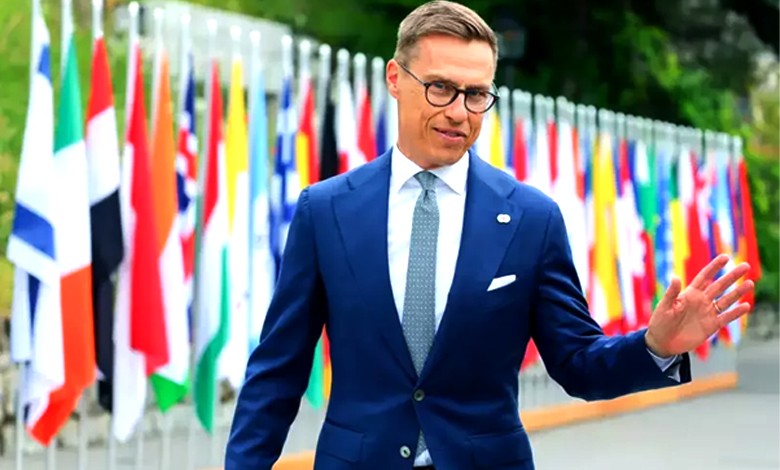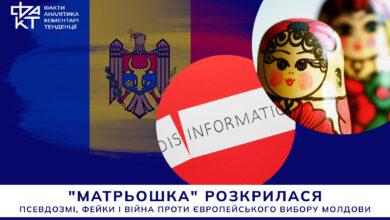End the war with one call: China and Russia respond to Stubb’s message

Statements by the President of Finland, Alexander Stubb, about the end of the war at the call of Xi Jinping caused quite a stir in the Russian and Chinese information fields. Russia is extremely dependent on China! – Chinese newspapers published such headlines. Russian mass media were reminded of the Russian superpower, offended by the role of a puppet country given to them by the Finnish leader.
Read more about Stubb’s interview with Bloomberg at our material.
What was the trigger?
Xi Jinping could put an end to the war in Ukraine with one phone call, Finnish President Oleksandr Stubb said in resonant interview.
According to Stubb, Russia is now so dependent on China that President Vladimir Putin has no choice but to listen to his Chinese counterpart.
“If he (Xi) said it was necessary to start peace talks, Russia would have to do it. They would have no other choice.” – noted Stubb.
In his opinion, ending the war in Ukraine would be a clear demonstration of China’s leadership and would be positively received both in the Western world and in the so-called Global South.
“Russia understands only force”
In an interview, Stubb disagreed with Hungarian Prime Minister Viktor Orbán on how to act in the situation in Ukraine. It will be recalled that during his visit to Kyiv, Orban called on Ukraine to quickly agree to a ceasefire in order to enable peace talks with Russia.
“At the moment, a ceasefire is out of the question, as real peace talks are needed,” – the Finnish leader denied the position of the Hungarian prime minister.
“The only thing Russia understands is power. The more we can help Ukraine, the sooner we can end the war.” Stubb continued and called on European countries to increase their support for Ukraine while improving their military defense capabilities and ability to counter Russian hybrid influence.
According to Stubb, Europe must transition to a military economy, and in the long term, the continent’s defense industry must combine its orders for ammunition and weapons.
Stubb is calling on the European Investment Bank, where he previously served as managing director, to “cross red lines” and become “more proactive” in funding the military industry.
Stubb also tells Bloomberg about Russia’s hybrid operations: What Russia is trying to do with hybrid attacks is to make us overreact. Exposing hybrid operations can also help stop them, the Finnish president believes.
According to him, Finland is now geopolitically and geostrategically one of the most important countries in Europe. We have just doubled the length of NATO’s border against Russia. Many people trust us, the Finnish leader believes.

How China and Russia reacted
Chinese Foreign Ministry spokesman Mao Ning responded to Stubb’s statement by saying that China and Russia are independent superpowers. “We continue to always be on the side of peace and dialogue and maintain contacts with all sides, including Russia,” Mao said at a press conference. He also reminded that China did not take part in the war in Ukraine and will not take part in this war. “We will continue our constructive role in promoting a political solution to the crisis,” Mao concluded. The Russian state news agency TASS reported China’s reaction.
It is significant that the Chinese press noted that the Chinese Foreign Ministry did not respond to the statements of the Finnish president. Instead, they expressed hope for a productive dialogue between Putin and Xi during the meeting of the Shanghai Cooperation Organization in Astana, Kazakhstan.
Careful Chinese media once again emphasized Beijing’s neutral position regarding the war in Ukraine, reminded that China “even criticized Russia for attacking the civilian population and threatening to use nuclear weapons.”
It was reiterated that China fundamentally opposes international sanctions, respects only punitive measures supported by the UN, and accuses the United States and its allies of fueling the war by supplying weapons to Ukraine.
Stubb’s call for a war economy and the possibility of ending the war with a single bell made headlines in Russia. Russian mass media were outraged by Russia’s role as China’s backdoor and declared the self-sufficiency of each of the countries in this tandem, where Russia is “responsible for security in the region, and China is responsible for development.”
Is there any basis in Stubb’s claims?
China’s approach to the war in Ukraine has always been cautious, due to the emphasis on the importance of sovereignty and territorial integrity, the forms of achieving which are dialogue and negotiations.
Xi Jinping’s potential to influence Putin is based on China’s strong bilateral ties and geopolitical leverage. However, China’s reluctance to take a more active role in mediating the conflict is due to its desire to maintain stable relations with Russia while avoiding direct confrontation with the West.
Economically, Russia’s dependence on China has increased, especially after Western sanctions imposed due to the war in Ukraine. China has become Russia’s largest trading partner, and trade volumes are growing steadily. Russia exports energy resources such as oil and gas to China while importing a wide range of goods, including technology and equipment. Although this brings economic benefits to Russia, it also increases Russia’s economic dependence on China.
In general, the economic relationship between China and Russia is asymmetric because China is a much larger economy. Major projects such as the Power of Siberia gas pipeline and other energy deals show that China is securing long-term energy supplies from Russia. Such projects are often accompanied by significant Chinese investments, which can further integrate Russia into China’s economic orbit.
China is a key supplier of technology and infrastructure to Russia. This relationship helps the Russian Federation, especially in the face of Western sanctions, but it also means that Russia increasingly relies on Chinese technology.
In Central Asia, a region of strategic importance to both Russia and China, Chinese economic influence is growing thanks to initiatives such as the Belt and Road Initiative (BRI). Sometimes this creates competitive tension between the two countries.
It is clear that China’s economic power gives it considerable diplomatic leverage. This means that China could potentially have more influence over Russia in the future.
Alexander Stubb’s assertion that Xi Jinping could end the war in Ukraine with a phone call underscores China’s significant influence over Russia. This influence is based on the deepening of strategic partnership and economic interdependence between the two states. As the war in Ukraine continues, the international community will be watching closely to see how China manages its complicated relationship with Russia and whether it chooses to use its considerable influence to bring about peace.





